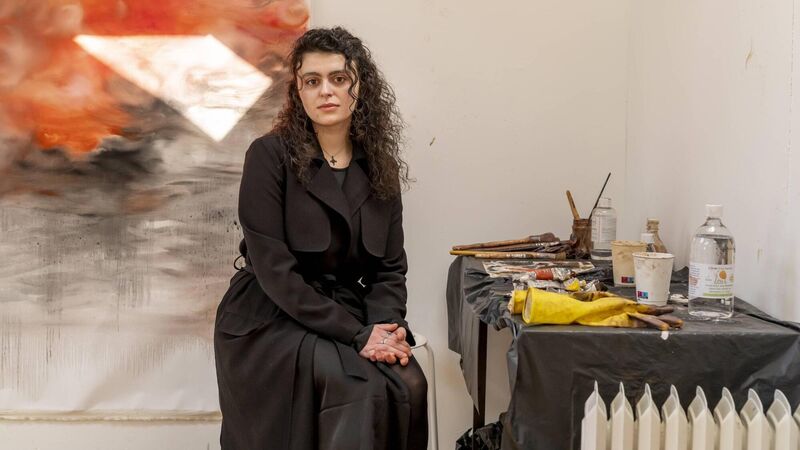'There's a very good bomb shelter in the building where I have my studio...'

Sana Shahmuradova Studio, IMMA Production Residency Partnership with EVA International, April 2023. Picture: Louis Haugh
Sana Shahmuradova Tanska is speaking via Zoom from her studio in Kyiv — the city that famously resisted the Russian invasion of Ukraine in February 2022.
Kyiv, the Ukrainian capital, has been bombarded with missiles on any number of occasions since, and it seems there is no end to the conflict in sight.




